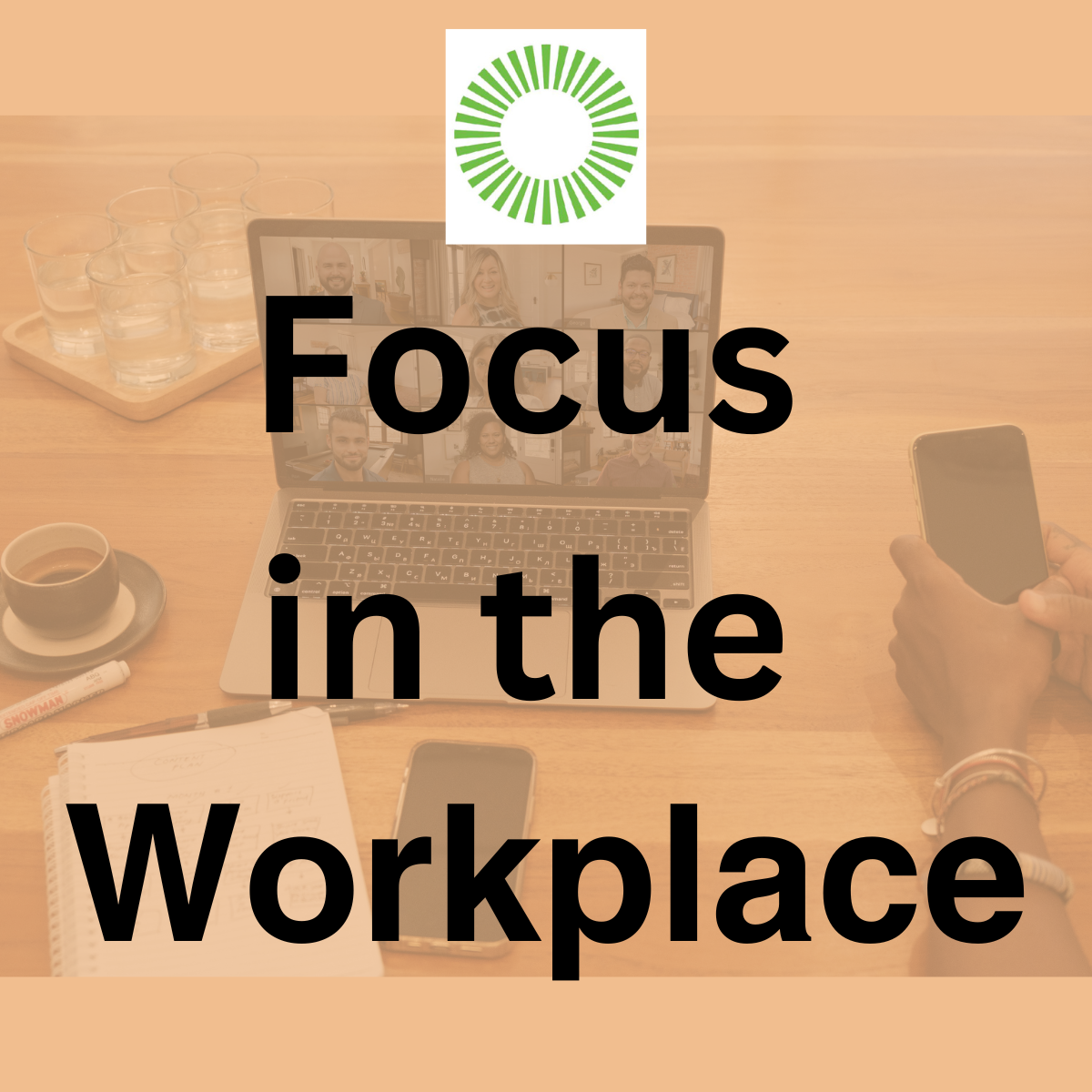April 16, 2023
If you ever feel like you have trouble focusing, you’re not alone.
Your ability to give full attention to one thing is highly prized, and everything from tech companies to your dog is competing for it. It’s no wonder that many individuals struggle to make it through a full hour of work without task switching. With phones buzzing, email pop-ups, and the typical adult struggle to get enough sleep it’s no wonder that some experts are saying we are in a global attention crisis.
There is a peace in recognizing that your attention span is up against great forces. We’re constantly bombarded with ads, reminders, and the lure of social media. Our best efforts to deeply focus are up against great odds, but there is hope to reclaim it.
There are many reasons that a person might be experiencing a personal lack of focus. Stress, for instance, plays a huge factor in the ability to focus attention. Stress from school, work, or financial difficulty makes it much less likely that an individual will be able to give his or her thought to things beyond the object of their worry.
Lack of sleep and poor nutrition also makes it harder to focus. We’re reminded of the physical consequences of missing out on these basic needs, but the mental repercussions are serious as well. Feeling mentally foggy is a result of physical needs that aren’t being met. Unfortunately, deficits in these areas need to be balanced before focus can improve.

There are still steps that you can take today, though to start improving your focus over the long term. Just imagine what you might do if your attention could improve by 20%.
Consider what better focus might mean for your professional life: deadlines crushed, goals made attainable, better job satisfaction.
Consider what better focus might do for your personal life: fewer accidents, improved relationships, and less anxiety.
Having a reliable, and consistent attention span is an appealing commodity to the average person. Yet, we often sacrifice it without noticing.
For instance, how many times per day are you interrupted? Probably more times than you can count. Consider that with each interruption you need to account, not only for the time spent focusing on the interruption itself, but on the time it takes to reorient yourself to the task at hand. In cases like this, even minor interruptions add up.
Solutions to Interruptions
If you are working in an office consider a system that lets coworkers know that you are in a state of deep focus. For example, a flag on the desk or changing locations within the office can indicate that you are doing deep work and should not be interrupted.
In remote work situations, an away message or indicator in an office chat such as Slack, Microsoft Teams, or Skype can let your team know that you are currently working without interruptions for a specific amount of time.
To limit interruptions further, use the focus settings on your phone or laptop. Stop notifications that divert your eyes from the task at hand. Use time limits for apps that test your resolve to focus on one task at a time. Remember that you are only limiting interruptions temporarily and there will be a time to check messages, notifications, and cat videos later.
Working without interruptions may even lead you to work in a flow state. Achieving flow regularly will not only improve your focus and lead to a happier work-life experience overall, but can also unlock your creative abilities.
To Help Achieve Flow
Focus on the motivation that leads you to do the task, rather than focusing on the end result.
Choose a task that will yield results quickly. For this, you must understand the goals. Rather than working slowly to achieve benchmarks, the tasks that help you achieve flow will likely have a more immediate result.
The tasks you do that help you achieve flow will likely test your skills, but not offer huge resistance in terms of challenge or fear of failure.
We understand that not every task, or every aspect of a job, will lead to a flow state. Some aspects of operating within a business are difficult, and some are- well- boring. Being bored can be a detriment to your focus as well. Remember, your attention is at a premium, and we know that there’s a whole world calling for it.
When you reach the necessary, but undesirable things that need your attention, consider using a method to help keep you on task.
To Choose a Method
For those prone to being neurodivergent, you might consider a method of Don’t Break the Chain, which motivates you with your own past actions to stay consistent.
For those more concerned with what must be done today, the Pomodoro technique can offer a period of focus with the promise of reward.
There is no shortage of methods to help you focus, but finding the one that works for you, in your season of life, and with the work that you are trying to accomplish can be revolutionary to your daily accomplishments.
Tackling an attention deficiency is beneficial, no matter which aspect of life you are working to improve. It may be personal health, relationships, or professional advancement. Improved focus means fewer mistakes, closer attention to detail, and less time lost in task switching. It means more energy and satisfaction as you use intrinsic motivation to push through tasks.
Each person may benefit from a more focused, intentional life in some respect. We hope that our teams can help remove some of the stress and distractions that professionals face in their offices on a regular basis. We know the relief of being able to Consider It Done, and it’s a pleasure to know we might be able to provide that to our clients.
